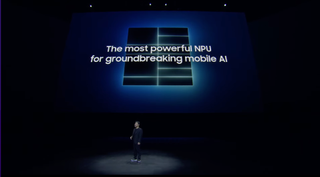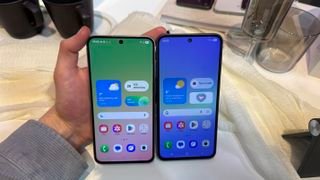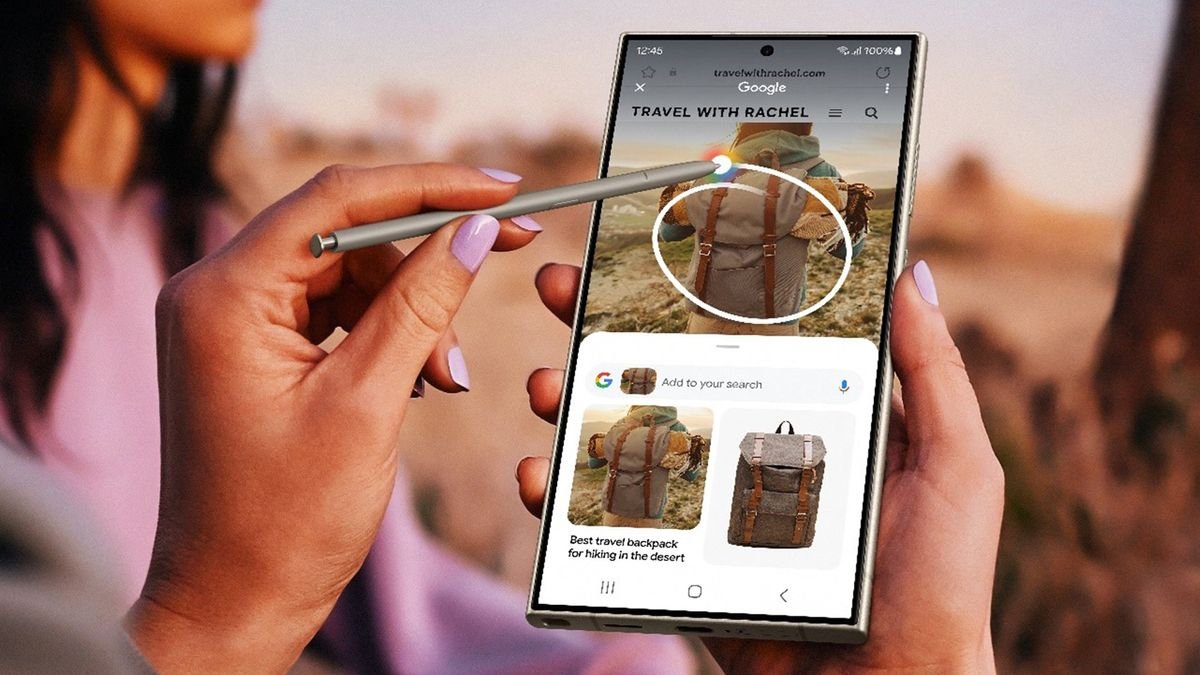There seems to be a big elephant in the smartphone industry’s room right now. The likes of Samsung, Apple, and Google are investing heavily in developing (and marketing) AI software, but consumers seem less than interested in a technology that has yet to be proven for their daily lives.
At least, that’s the impression we get from reader feedback, and a recent survey of more than 2,000 iPhone and Samsung Galaxy users found that 73% of iPhone-owning respondents and 87% of Galaxy-owning respondents feel that AI adds little value to the smartphone experience. This should be tough reading for tech executives who are Group betting on hundreds of billions On the future of artificial intelligence.
Of course, adoption takes time, and Samsung, for its part, is committed to playing the long game. At MWC 2025, I spoke to Annika Bizon, VP of Mobile Experience (MX) from Product and Marketing at Samsung UK, who spoke of the company’s “first goal” with Galaxy AI – and whose adoption figures paint a more optimistic picture.
You may like
-
What is Galaxy AI: Samsung was first off the blocks with AI device integration but is it any good?
-
Galaxy AI at the heart of the Samsung Galaxy S25 – Here are the top 5 new features
“Last year we launched Galaxy AI to market, and we now have over 5 million people using it regularly in the UK. It took the internet eight years to get to that number,” said Beeson. “Once you start using something, it becomes our behaviour, our job is to change the behaviour, so people can see the benefits.”
“Now,” Bizon continued, “you can only change behavior if people see a benefit. (That’s) the first goal. The second thing for us: Galaxy AI is our hero messaging because we want to own that space and bring credibility to that space. But we also need to demystify it, right? Because AI means a million things. Look around you today (at MWC). What we’re saying is: AI makes the mundane easier. It makes you more creative, giving you time to do the things you love. But you can’t forget that people buy a phone for the camera, the battery life, the durability. Those are the principles that will sit under every single product we bring to market.”

Clearly, then, Samsung hasn’t forgotten the importance of hardware to consumers—despite the dizzying number of Galaxy AI-related announcements you’re likely to see over the past year. AI is Samsung’s “hero messaging,” but it’s a matter of synergy, not prioritization.
“If you think about hardware and software, they work together,” Bezon told me. “AI improves the battery on your phone, AI improves the camera on your phone — you can always iterate through hardware, but when you start adding AI to that, you take the whole experience to another level.
“(Our customers use AI) because it makes their lives easier, whether it’s a search engine or a live translator, or the fact that I can book a restaurant with my voice and send an invite directly to my friend’s calendar. It’s all about saving time. If you save time, and you get the best hardware (working alongside) the best software, you start to really change the customer experience. And that’s the important thing. Working in a way where the technology works for you instead of you working for the technology. AI is the space where we see all of (the technology) coming together – it’s like a PA in your pocket.”
Democrat is the key to adoption.

Where smartphone-based AI was a wallet The best phones were a year or so ago, and now companies have pivoted to offering AI at almost every step of the price ladder.
For example, Google offers the same AI features on the budget-friendly Google Pixel 8A as it does on the Google Pixel 9 Pro, while Apple recently debuted the Apple Intelligence-compatible iPhone 16E, which lowers the cost of entry into the AI feature suite. Removing the exclusivity from AI will allow these companies to refine and test AI features in a way that simply isn’t possible with a limited sample size, and Samsung, to its credit, realized this earlier than most.
After launching Galaxy AI in January 2024 on the Galaxy S24 series, Samsung rolled out the same features to the Galaxy S23 series just two months later. Galaxy AI compatibility now covers everything from the Samsung Galaxy S25 Ultra to the mid-range Galaxy A55.
We have over 5 million people using Galaxy AI on a regular basis in the UK.
Annika Bizon, Samsung
“AI for All is really important to us,” Bezon explained. “Everyone has the opportunity to use AI. I’m personally really proud of the fact that we took the step last year to bring [Galaxy AI] to previous-generation devices—over 200 million devices globally—and give people the opportunity to experience it. You can only get adoption when you have a mass market to do it.”
What’s more, the numbers behind AI aren’t all bad. The survey results above reflect current sentiment toward smartphone-based AI, but recent research from TechRadar Future suggests that people are increasingly swapping traditional search engines for AI tools like ChatGPT.
Consumer habits We are Change, and while Galaxy AI may seem like a gimmick now, it won’t be long before millions of smartphone users are using their voices to make restaurant reservations. Consider this: Cars, laptops, and cheeseburgers were all considered silly novelties when they first came on the market. Now they’re critical to the global economy.
- Best Samsung Phones: Top Galaxy Phones Ranked
- Samsung Galaxy S25 Edge will have the durability to match its 'sexy' design
- Samsung Galaxy S25 Ultra Review: The Ultimate Android

